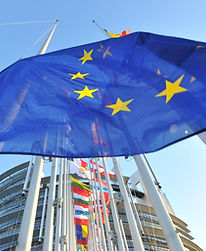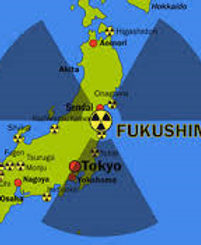News
China seeks clean, sustainable energy for growth
2014-05-22
Nuclear power will feature in China's efforts to ensure energy security for the country's continued economic growth, premier Li Keqiang said at the first meeting of the newly-established National Energy Administration (NEA).
Headed by Li, the NEA was set up to coordinate China's overall energy policies. It includes representatives from other agencies, including the environment and finance ministries, the central bank and the National Development and Reform Commission. The NEA will draft a new energy development strategy, evaluate energy security and coordinate international cooperation on climate change, carbon emissions reduction and energy efficiency.
Speaking at the administration's first meeting on 18 April, Li said that "energy supply and security is related to the overall situation of China's modernization." He said that the country needs "a clean, efficient and safe sustainable energy development path, to provide support for stable economic growth."
He said that, in order to enhance its energy security, China will increase both onshore and offshore oil and gas exploration and development while promoting the development of unconventional oil and gas resources, such as shale gas, shale oil and coal bed methane. At the same time, China will work to increase its use of cleaner energy and improve energy efficiency. It will also actively promote the use of electric vehicles and call for coal-powered plants to be modified to reduce their emissions.
Li said that a number of projects will be launched "to improve energy security capabilities." Included in these will be the "timely launch" of new nuclear power plant construction projects in China's eastern coastal region. The country has a nuclear capacity target for 2020 of 58 GWe in operation and 30 GWe under construction. There are currently 28 units under construction, with a further 34 coastal units planned. Construction of 24 units at inland sites has been deferred.
Other projects planned to be launched soon include the construction of hydropower, wind and solar energy projects, as well as building ultra-high voltage transmission lines.
"These energy projects can ensure stable economic growth and increase China's capability to safeguard energy security," he said. He added, "China will wage a war against smog and step up ecological protection measures by further saving energy and cutting emissions."
Li said that China will accelerate the pace of reform of the electricity market "to promote direct trading, providing a more economical, high quality power protection, letting the market play a decisive role in the allocation of power resources."
China generated a total of 1.3 trillion kWh of electricity during the first quarter of 2014, a 5.4% increase from the same period in 2013, the NEA said. China's 20 operating nuclear power reactors have a combined generating capacity of 17,055 MWe and supply about 2% of the country's electricity.
Researched and written
by World Nuclear News

NEWS
€2.2 billion owed to German nuclear utilities
2014-05-15
Germany should immediately refund some €2.2 billion in nuclear fuel taxes collected from EOn and RWE, pending final decisions on the tax from either the Federal Constitutional Court or the European Court of Justice.
The latest ruling in the court battle over nuclear fuel taxes in Germany came yesterday from the Hamburg Tax Court, underlining successive decisions since power plant operators were required to pay €145 ($200) per gram of uranium or plutonium loaded into power reactors. The tax is intended to take about half of the profit from the nuclear power plants.
That tax arrangement had been agreed between utilities and the government in 2010 as an amendment to the 2002 Atomic Energy Act that would allow longer operating lives for German reactors. But the government reneged on the deal in reaction to the 2011 Fukushima accident in Japan by taking away the longer lives and forcing closures of older units - all while keeping the tax. Power companies were quick to take the matter to court.
In yesterday's ruling, the Hamburg Tax Court agreed with the utilities that they should be relieved from paying the tax, and should be refunded some €2.2 billion ($3.0 billion) until the tax's legality is finally decided. Two courts have the power to end the matter once and for all: The Federal Constitutional Court may decide that the tax is unconstitutional due to being aimed at reducing profit rather than reducing consumption; or the European Court of Justice (ECJ) could rule the tax as being against EU legislation because it applies to an input of electricity generation, not the output product, as taxes across the 28 nation bloc should uniformly do. A ruling from either of the courts would settle the matter, although final judgements are not expected for several months at least.
EOn is owed about €1.7 billion, and RWE about €500 million. Before the tax and Germany's concerted attack on nuclear power in the wake of Fukushima, the companies had been among Europe's most powerful utilities, seeking to invest in many of the European Union's increasingly integrated and competitive power markets. It is expected that customs offices will appeal the latest ruling to delay any repayment, while an EOn statement said the expected sum would not be recorded in its accounts immediately.
In parallel with contesting the tax, RWE is also claiming damages from the losses incurred as a result of the forced closure of its Biblis nuclear power plant in 2011. The actions of the state of Hesse were ruled to be unlawful in this regard by the German Supreme Court in January. Another nuclear utility, EnBW, is 45% owned by the Green-controlled state of Baden-Württembergand not contesting its damages. Vattenfall of Sweden is fighting the shutdowns of two German reactors in which it has stakes via international arbitration.
Researched and written
by World Nuclear News
Subsidies for European nuclear fuel manufacturers
2014-05-14
Manufacturers of nuclear fuel within the European Union will be eligible for national subsidies to cope with the additional costs of using electricity generated by renewable sources in operations, according to new rules announced by Brussels.
The European Commission said last week that it would approve support offered by EU governments to energy intensive industries as a response to the burden imposed by the high electricity prices coming from taxes and levies intended to finance renewable energy.
Nuclear fuel processing was a sector on a list of 68 industry areas that could benefit from the new relaxed EU subsidy rules, assuming national governments decide to take advantage of them. Even so, companies would still need to pay at least 15% of the additional costs for electricity coming from renewable energy sources, according to the European Commission.
These new rules apply retroactively from 1 July 2011, according to the EU competition commissioner Joaquín Almunia.


Inside Fukushima
2014-05-21
See the report from Will Ripley, CNN, that visited one of the most dangerous places on earth and his conclusions of the impact that the Fukushima acident will have in the next decades.
STORY HIGHLIGHTS
-
CNN's Will Ripley visited the devastated Fukushima Daiichi nuclear plant
-
The only people regularly allowed in the red zone are workers in protective gear
-
Conditions inside the Fukushima plant are extremely dangerous
-
It will take decades to make the place safe again
See all the report here

